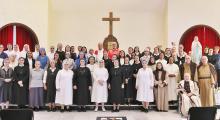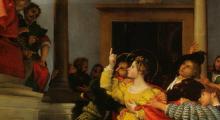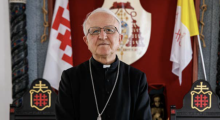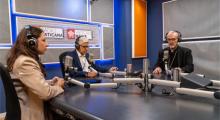Issued by the Catholic Center for Studies and Media - Jordan. Editor-in-chief Fr. Rif'at Bader - موقع أبونا abouna.org
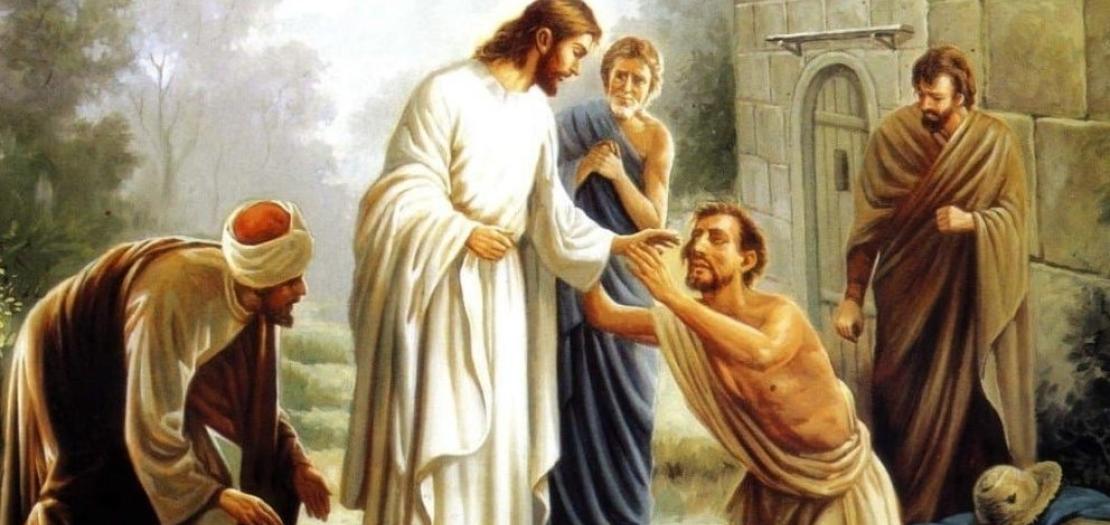
Following is the text of the meditation by His Beatitude Cardinal Pierbattista Pizzaballa, Latin Patriarch of Jerusalem, for the sixth Sunday of ordinary time B, dated February 11, 2024:
We saw, last Sunday, that Simon's mother-in-law, once healed of her fever, sets out to serve her guests and thus brings to completion the work of healing and salvation that Jesus had begun in her (Mark 1:31): the ripe fruit of the encounter with the Lord, in fact, is not a return to her former life, but a new beginning, a conversion precisely (cf. Mark 1:15), a bringing into one's own flesh of the new life that salvation has wrought.
We might try to draw a parallel with today's Gospel (Mark 1:40-45): for today, too, Jesus heals a man stricken with leprosy, and then asks him for a new beginning, which passes, for him, through the order to go to the priest and offer what the Law prescribed to attest to the healing.
This might sound like something very different from what happened to Peter's mother-in-law. In fact, it is not.
The man, sick with leprosy, was a man excluded from worship, from relationships, from the life of the people of Israel. From the Law, he had to observe only the rules that decreed his exclusion.
Jesus sends him, therefore, back into the life of the people, which comes through the Law. For the free man, the saved man, is the man who keeps the Law, who is responsible, like his brothers and together with them, for the good of all. The Law, for Israel, is the way of life, is the acceptance of the covenant as the foundation of one's existence.
And the healed leper is invited to take responsibility for his own response to the covenant with God. The goal of healing, for this man, is to re-enter an adult and responsible life.
We said that the lepers were basically outcasts, ghettoized: they wanted, therefore, to live the fullness of their faith life, but they could not.
This is, after all, what the leper says to Jesus, "If you will, you can," (Mark. 1:40) acknowledging to him a freedom that himself knows he does not have. He would like to, but he cannot.
The interesting thing, however, is that Jesus, in healing him, does not stop there. He does not simply restore to him a chance that he was denied, a freedom he had lost.
By sending him back to the Law, he adds a step, which is the culmination of a saved life. And it is the step of duty, responsibility, obedience, as the highest form of love.
Not only, then, "If you will, you may." But also, "If you will, if you now can, then you must."
If Simon's mother-in-law wants to put her life at the service of her guests; if, once she is healed, she can do so, then she must. So it is first of all for Jesus, who first obeys the will of the Father, the will that wants every man saved.
So it is for every healed, for every saved, because salvation is first and foremost a demanding responsibility, one that commits your life to making every possibility a duty. It is not a comfortable life that of the healed.
This is perhaps the most difficult passage, as is also evident from the fact that the leper, healed, does not obey the Lord's peremptory command.
And this may perhaps tell us that the healing of the heart, the birth of a "purified" conscience, (cf. Mark 1:40) capable of obeying the Law of love, is a long and sometimes painful process, not free from falls and mistakes.
And if we are in a hurry to feel healed, we risk forgetting that true healing calls for the silence of a long maturation, like that of a seed that slowly grows.
Only from this silence, are the words of healing born.
Today's passage ends with a kind of reversal: the leper enters the city, and Jesus remains outside. (Mark 1:45) For Jesus, unlike the healed leper, goes all the way to the compassion he feels toward the wounded mankind, to that "duty" of solidarity with his brothers and sisters, that leads him to share, in everything, without discount, our pain and loneliness.
And it is there, in this deep sharing of all that we are, that Jesus becomes truly accessible to all: "And they came to him from all sides." (Mark 1:45)
+Pierbattista


